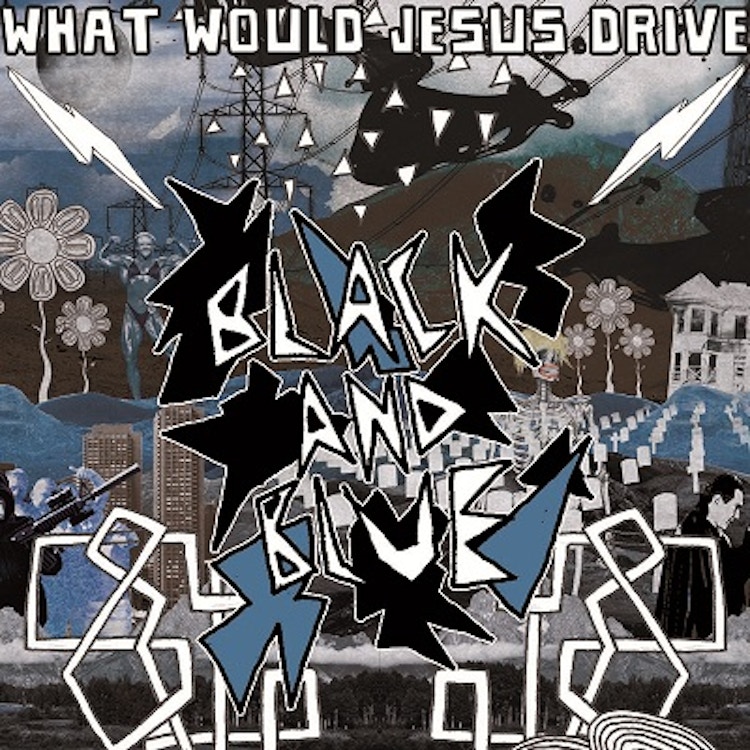"Black and Blue"

Have you ever had one of those friends? You know, one of those most outgoing people, who can always be relied upon to come out and socialise but who has a tendency to say the most crass and offensive things and to always be up for a confrontation? Now fully-formed on their debut album, What Would Jesus Drive will be to your music collection what those people are to your social circle. Loud, brash, unsubtle and frequently foul-mouthed, Black and Blue is kinetic, anarchic fun but won’t sit well with polite company.
“Well fuck me it’s about time / someone took offence to what I said”, complains co-vocalist Amy Casey in the first line of a song called ‘Boomtown Twats’. By way of a lyrical case in point about what WWJD are about, it’s one of a number of particularly choice examples; another would be the marvellously over-the-top list of exasperated expletives that closes ‘Love Is’. Musically the songs are throbbing, angular slabs of guitar allied to bleepy electronics and lairy, semi-shouted vocals from Casey and husband Tim Box. Although they are written to be catchy and memorable, the songs are also often filled with sudden shocks, and the title track opener starts with a genuinely annoying siren.
Like fellow post-punk revivalists The Rakes and to a certain extent Bloc Party, WWJD produce music that documents some of the worst excesses of 21st-century urban life, and the gimmicks in the songs are best understood as ways to inhabit that world and co-opt that its language and sound. ‘Black and Blue’ is as violent as the drunken thugs it describes, for example, while the later ‘Transylvania Time’ is as messy and disorganised as its passed-out protagonist. In that way, the stronger songs on Black and Blue make for a surprisingly immersive listening experience – it’s just that you won’t want to live in WWJD’s chaotic world for more than short stretches of time. The band are smart enough to realise this too, and wisely constrain the record to just over half an hour.
In my review of the band’s last EP Fragile Mansions, I commented that the WWJD’s next test would be to vary their sound and keep up their consistency while moving up to the challenging LP format. On Black and Blue they’ve largely succeeded in doing that, but a few weaker tracks still remain. ‘The Leccy’ is the predominant culprit here – like ‘Victory’ from Fragile Mansions, it’s a solo spot from Amy Casey which simply doesn’t do enough to justify its existence, and stumbles on a weak set of clumsily-rhyming lyrics. It’s the weak link in a fun album which doesn’t so much provide escapism as humorously and excitingly rub your face in the worst modern life has to offer. It’s not the sort of thing you’d want to listen to on repeat or while the grandparents are visiting, but nevertheless Black and Blue is a record with something to say.
Get the Best Fit take on the week in music direct to your inbox every Friday

Lorde
Virgin

OSKA
Refined Believer

Tropical F*ck Storm
Fairyland Codex





